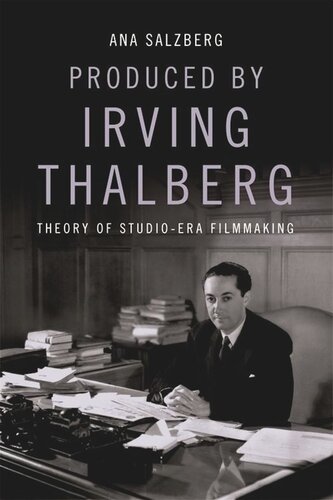

Most ebook files are in PDF format, so you can easily read them using various software such as Foxit Reader or directly on the Google Chrome browser.
Some ebook files are released by publishers in other formats such as .awz, .mobi, .epub, .fb2, etc. You may need to install specific software to read these formats on mobile/PC, such as Calibre.
Please read the tutorial at this link: https://ebookbell.com/faq
We offer FREE conversion to the popular formats you request; however, this may take some time. Therefore, right after payment, please email us, and we will try to provide the service as quickly as possible.
For some exceptional file formats or broken links (if any), please refrain from opening any disputes. Instead, email us first, and we will try to assist within a maximum of 6 hours.
EbookBell Team

4.3
28 reviewsIrving Thalberg was not just a critically important producer during Hollywood’s Golden Age, but also an innovative theorist of studio-era filmmaking. Drawing on archival sources, this is the first book to explore Thalberg’s insights into casting, editing, story composition and the importance of the mass audience from a theoretical perspective. It examines Thalberg’s impact on film-historical turning points, such as the transition to sound cinema and the development of the Production Code, and features in-depth analyses of Thalberg’s productions at MGM from 1924 to 1936, including films like The Big Parade (1925), The Broadway Melody of 1929 (1929) and Romeo and Juliet (1936). The book argues that Thalberg’s views represent a unified conceptual understanding of filmmaking – one that is still significant in the modern day.